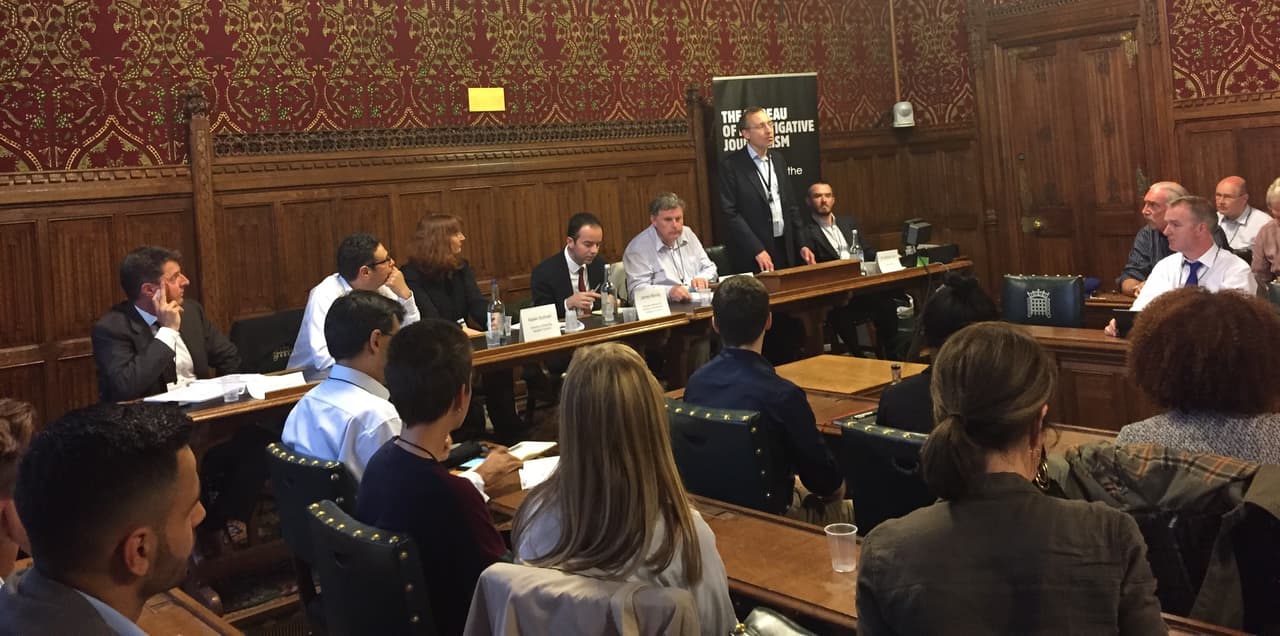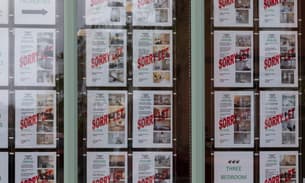
Housing developers must disclose secret viability assessments, say senior Labour MPs
The Bureau’s debate in parliament on affordable housing (above)
Confidential financial reports submitted to local authorities by developers when they want to reduce their affordable housing obligations should be made public, argue two London Labour mayoralty candidates.
The comments were made by senior Labour MPs Sadiq Khan and David Lammy during a parliamentary debate on Housing Supply in London. They follow work by the Bureau of Investigative Journalism, which over the past two years has highlighted how the current system allows developers to keep their justifications for reducing affordable homes secret.
With affordable housing completions at a seven year low, the system known as financial viability, was also the subject of a packed Bureau debate held at the Palace of Westminster last week.
Housebuilders use financial viability assessments to prove a local authority’s affordable housing target makes their schemes uneconomic and so cut the number of units built.
An assessment lays bare to council officers the economics of a project, providing detailed financial evidence for a developer’s claim that a particular scheme would not be viable without reducing the number of affordable homes. The problem is that these assessments are not available to public scrutiny. In the few assessments that have been brought into the open by campaigners, there are questions about some of the financial assumptions and statements provided.
In Wednesday’s Commons debate, Tottenham MP David Lammy cited the example of how a proposal to turn a former police station in his constituency into flats which would have seen just 14% of the units reserved for low cost housing.
“That is not acceptable when public land is involved,” Lammy argued.
The London Mayoral hopeful added: “We should make the plans that developers put forward for public land transparent and open. All of the accounts of viability on public land should be available to the public, so that they can interrogate whether the proportion of affordable homes is in fact fair.”
A rival in his bid to become Labour’s candidate for London Mayor, Sadiq Khan, argued that disclosures through Freedom of Information centring on three major London housing developments revealed how developers “have taken advantage of the viability con, which means that they can say it is not viable to build affordable homes.”
Khan praised Islington council’s consultation document published earlier this month which has proposed to make all viability assessments public “apart from in exceptional circumstances”.
Government housing and planning minister Brandon Lewis did not address the issue of viability assessments in his response.
Instead he focused on the Coalition’s record since 2010 which he said “delivered more than 260,000 affordable homes in England, including more than 67,000 in London alone”.
Lewis pledged the Conservative government will build 275,000 affordable homes by 2020.
“That is the fastest rate of affordable house building in more than 20 years, and it will benefit communities across our country,” he said.
The day before the Palace of Westminster debate, the Bureau held an event in parliament which brought together over 80 members of the development industry, academics, politicians and campaigners.
The event was sponsored by Labour’s shadow justice minister, Andrew Slaughter. It featured senior real estate figure, Dr Anthony Lee from BNP Paribas Real Estate as well as Islington Council’s director of planning, Karen Sullivan and University of Westminster senior lecturer, Duncan Bowie.
In a two year investigation into the viability system, Bureau’s research has found that not only is the process shrouded in secrecy with most developers refusing to disclose to the public the assessments on which their figures are based but also that councils rarely employ external experts to scrutinise housebuilders’ assumptions contained in their viability submissions.
Read the Bureau’s full investigation into the Housing Crisis.




